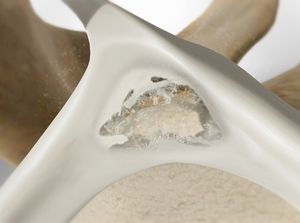SLAP tears refer to an injury to the superior glenoid labrum, the upper region of the specialized cartilage surrounding and providing stability to the shoulder socket.

SLAP tears refer to an injury to the superior glenoid labrum, the upper region of the specialized cartilage surrounding and providing stability to the shoulder socket. SLAP stands for “superior labrum anterior to posterior”. The most common tear includes a detachment of the long head of the biceps tendon, the large muscle of the upper arm, from the labrum around the glenoid (socket).
What causes it?
SLAP tears can result from traction or compression movements that lead to a steady increase in pain. Traction injuries are seen in athletes that throw overhead and from sudden forces like catching oneself while falling to the ground. It can also be caused by trauma to the shoulder. It can happen because of a road accident or a fall onto an outstretched arm. It can be caused by a forceful overhead motion, or when you try to catch something heavy. It can also be caused by repetitive motions. Throwing athletes and weightlifters can be injured this way.
signs and symptoms
The shoulder will pop or click after a SLAP tear and lead to difficulty and pain with overhead movements and reaching across or behind. The pain can be described as deep within the joint. Other symptoms may include pain or loss of strength. You may not have your full range of motion. Your shoulder may feel unstable and it may be hard for you to lift and to throw.
Non-surgical treatment
Treatment depends on your needs. Your shoulder may heal with rest, medications. Physical therapy is needed to strengthen and stretch the muscles
around the shoulder, especially the back of the shoulder which can
become tight in overhead athletes.
surgical treatment
If conservative therapy fails and an MRI confirms the tear, surgery is often recommended. Your healthcare provider will create a plan that's right for you.
At The Shoulder Center at Andrews Sports Medicine, our fellowship-trained non-surgical physicians and orthopaedic surgeons provide the most-advanced, comprehensive treatment solutions for injuries and disorders of the shoulder. To schedule an appointment, call (205) 939-3699.
Request an Appointment OnlineBack to Shoulder







